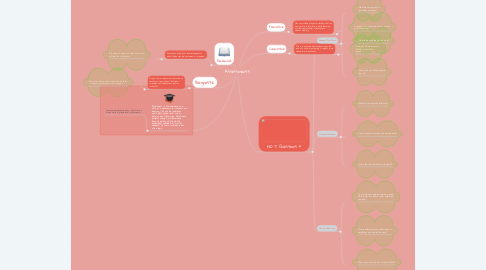
1. Diagnostic
1.1. A type of pre-assessment that allows a teacher to see students' individual strengths and weaknesses prior to instruction.
1.1.1. Examples: Group work or stations is a form of diagnostic assessment or a pre-quiz.
2. Benchmark
2.1. A standard or point of reference against which things may be compared or assessed.
2.1.1. Examples: 3 week or 6 week exams and call also be a unit exam.
3. Assessment is the evaluation or ability to determine if students are learning. This can be individual, whole class, grade level, school, district and state wide. Assessment purposes range from knowledge, learning ability, gifted ability, grade level readiness as well as readiness for next level education like college.
3.1. Assessment data allows us to confirm we are on track to grade level performance.
4. Formative
4.1. This can include diagnostic testing and can be formal or informal to modify teaching and learning activities that enhance student mastery.
4.1.1. Examples: Exit ticket after lesson or daily quiz/chapter quiz.
5. Summative
5.1. This is to evaluate student learning at the end of a unit by comparing it against some standard or benchmark.
5.1.1. Examples: Midterm exams, STAAR or end-of-unit exams.
6. H.O.T Questions
6.1. Opening Questions:
6.1.1. What are some parts of informational books?
6.1.2. What is the main idea of the story?
6.1.3. How would you define/explain the fair?
6.2. Guiding Questions:
6.2.1. What can you infer about the fair?
6.2.2. Can you explain activities you do at the fair?
6.2.3. How is the fair different from the park?
6.3. Closing Questions:
6.3.1. How could you verify the senses you use while at the fair? (touch, taste, smell, feel and hear)
6.3.2. After reading your story, what ideas or details can you add to this story?
6.3.3. What is your favorite part of the fair? Why?

